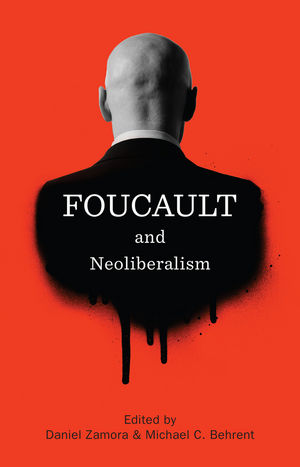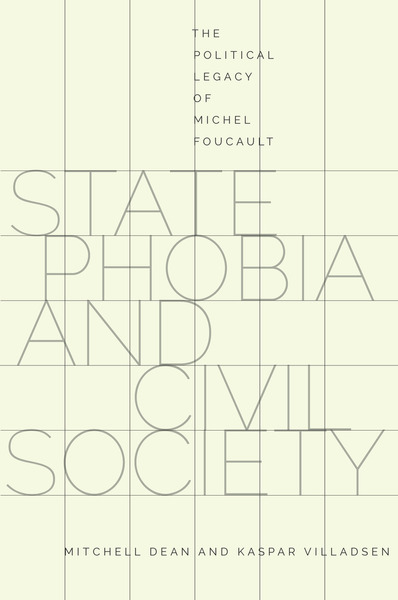The strong of the future
Nietzsche’s accelerationist fragment in Deleuze and Guattari’s Anti-Oedipus
Despite the passing of time there are fragments of thought that acquire a life of their own and hit the headlines of philosophical and cultural journals with regards to their evaluation and interpretation. Among the most famous ones is the Fragment on Machines by Karl Marx. More recently another «fragment» has gained importance in terms of discernment: a dark and forward looking «fragment in the fragment» by Friedrich Nietzsche nestled in one of Deleuze and Guattari’s Anti-Oedipus (1972) crucial pages.
As widely known the reference to Nietzsche in the famous «accelerationist passage» in Deleuze and Guattari’s Anti-Oedipus is decisive and closes the paragraph entitled The Civilized Capitalist Machine (Chapter III, Par. 9, pp. 222-239). Until today the various commentators of such passage have left aside or overshadowed the specific reference to Friedrich Nietzsche’s Große Prozeß, others have simply quoted the «accelerate the process» issue referenced by Deleuze and Guattari, mentioning Nietzsche’s book The Will of Power but no one has ever referred to the precise fragment or its context and the potential themes it implies.
The quotation of the fragment is always derived from critical essays or secondary literature books and never from the original Nietzschean work, apart for a note in Wikipedia at the definition of «accelerationism» and Matteo Pasquinelli’s short mention in his English “post” called Code Surplus Value and the Augmented Intellect.
It is likely that this omission finds its origin in the fact that Deleuze and Nietzsche’s English speaking/reading scholars when referring to the English edition of the Kritische Gesamtausgabe edited by the Stanford University Press (Colli and Montinari critical edition) may not have all the posthumous fragments available. The collection The Complete Works of Friedrich Nietzsche in fact started in 1995 but the edition suddenly stopped after the publication of only three of the originally proposed twenty volumes, due to the loss of one of the two curators, Ernst Behler, who died in 1997. Only ten years later, in 2011 Alan D. Schrift and Duncan Large, the two new curators, published three new volumes but the «accelerationist fragment» inserted in Vol.17 Unpublished Fragments: Summer 1886 – Fall 1887 will be presumably published later.
The controversial final part of The Civilized Capitalist Machine may be fully and deeply understood only through a clear reference and analysis of the accelerationist process described by Nietzsche. The specific identification of the above-mentioned Nietzschean fragment which Deleuze and Guattari refer to, opens to a definitive interpretation of the final passage of The Civilized Capitalist Machine. Christian Kerslake, a sharp critic and observer of Deleuze’s work finds the passage quite “difficult to comprehend”. Here is the famous passage which has become a crucial issue especially in the accelerationist area of commentators:
“But which is the revolutionary path? Is there one?—To withdraw from the world market, as Samir Amin advises Third World countries to do, in a curious revival of the fascist "economic solution"? Or might it be to go in the opposite direction? To go still further, that is, in the movement of the market, of decoding and deterritorialization? For perhaps the flows are not yet deterritorialized enough, not decoded enough, from the viewpoint of a theory and a practice of a highly schizophrenic character. Not to withdraw from the process, but to go further, to "accelerate the process," as Nietzsche put it: in this matter, the truth is that we haven't seen anything yet.”
Our research has identified the precise Nietzschean fragment quoted by Deleuze and Guattari as shown above. It is a fragment positioned in two different Friedrich Nietzsche’s posthumous editions. The title of the fragment is The Strong of the Future and it was composed in the Fall of 1887. In the collection of fragments edited by Gast and Nietzsche’s sister (The Will of Power, 1906) 1.067 fragments were randomly listed and The Strong of the Future was numbered 898. This arbitrary collection of fragments entitled The Will of Power has produced controversial debates in both political and philosophical fields since the beginning of the twentieth century.
The same fragment with the same title is present in Colli and Montinari’s The Complete Works of Friedrich Nietzsche. It may be found in Part II Vol. VIII of the Italian edition entitled Frammenti Postumi: 1887-1888 together with other 371 fragments that Nietzsche collected in a series provisionally entitled The Will of Power that he will never publish. Here the fragment is numbered (105) 9 [153].
In the original fragment Nietzsche used the verb «beschleunigen» - derived from the physics world- literary meaning «to accelerate something facilitating its faster track». In the English translation by Kaufmann in 1967 the verb has been rendered as «hasten» whereas «accelerate» would have probably been more pertinent even in English, due to the fact that the former deals with the necessity to accelerate not only in a physical way, while the latter indicates an intrinsic, innate faster speed increase of a process. In the Italian translation the verb used is again «affrettare»(hasten) instead of «accelerare» (accelerate), strengthening the above mentioned difference between the two verbs: «accelerare» means the intrinsic and physical increase of an event or of a process whereas «affrettare» shows an external provision of such increase.
Actually the only significant commentator on Nietzsche’s fragment and Deleuze’s quotation is Pierre Klossowski in his Nietzsche and the Vicious Circle (1969), a work dedicated to Gilles Deleuze, who highly appreciated this publication together with Foucault. The useful fertility of Klossowski is dual, first on an exegetic side of his essay Nietzsche and the Vicious Circle and second for his «fructificative» translations of Nietzsche’s works. Not only we may assert that Klossowski was a famous translator from German to French of many intellectuals and philosophers like Benjamin, Wittgenstein, Heidegger (his Nietzsche, 1971) but we may state that he has been the best interpreter of Nietzsche’s thought in France thanks to his masterful and superlative work on The Gay Science in 1954 but in particular for the translation of the Fragments posthumes - Autumn 1887 - mars 1888 edited by Gallimard in 1976.
The fragment we refer to, Les forts de l’avenir, had already been released in Nietzsche et le cercle vicieux in 1969. It is exactly there that we find the verb “beschleunigen” translated in «accélérer» (accelerate); therefore Klossowski’s interpretation has been at the basis of Deleuze’s choice in using the expression to accelerate the process when asking himself which «revolutionary path» to undertake; that is the same question the accelerationist movement poses today.
Through an exegetic analysis of the fragment The Strong of the Future in his Nietzsche and the Vicious Circle, Klossowski evaluates Nietzsche’s thought of 1887 very extant and contemporary, able to move from untimely meditations to disconcerted newness in less than one hundred years, affirming that “the economic mechanism of exploitation (developed by science and the economy) is decomposed as an institutional structure into a set of means” entailing two results: “on the one hand, that society can no longer fashion its members as ‘instruments’ to its own ends, now that it has itself become the instrument of a mechanism; on the other hand that a ‘surplus’ of forces, eliminated by the mechanism, are now made available for the formation of a different human type: the strong of the future.
To reach such a new type of man we should not obstruct this irreversible great process but foster its inexorably expansive acceleration in a mechanism which may seem (without being) contrary to the main aim of «the strong of the future»: the differentiation. The leveling and the social homogenization perpetrated by the democratization of the industrial society are responsible of men’s shrinking. The «strong» and the «leveled ones» will then act for or against such «inexorable law» in a paradoxical overturning, as well as workers and capitalists fight in favor or against the relentless law of the tendency of the rate of profit to fall, another big issue Deleuze and Guattari posed in the paragraph called The Civilized Capitalist Machine.
We have now concluded this short essay whose aim was to precisely describe the Nietzschean source Deleuze and Guattari had drawn from in their famous passage of the «revolutionary path» in the book Anti-Oedipus and to produce the right bibliographic references to the «accelerationist» fragment in Nietzsche’s complex work. We are aware to have just started a challenging work on the decoding of the deepest meaning of the paragraph The Civilized Capitalist Machine and in particular of the accelerationist passage about the theory and the practice of decoded and deterritorialized flows.
Obsolete Capitalism, August 2015
Appendix
1. Les forts de l’avenir [ translated by Pierre Klossowski, 1969 ]
Ce qu’en partie la necessité, en partie le hasard ont réussi çà et là, soit les conditions préalables à la production d’une espèce plus forte : c’est ce que désormais nous pouvons comprendre et sciemment vouloir : nous pouvons produire ces conditions dans lesquelles semblable élévation est possible.
Jusqu’à présent, l’« éducation » n’avait en vue que le profit de la société : non pas le plus grand possible profit de l’avenir, mai celui précisement de la société existante. On ne voulait pou elle que des « instruments ». Admis que la richesse en forces soit plus grande, une soustraction de forces pourrait se concevoir, dont le but consisterait dans le profit, non plus de la société, mais de l’avenir.
Semblable tâche serait à poser, à mesure que l’on comprendrait en quel sens la forme présente de la société se trouverait engagée en une transformation piussante, jusqu’au jour où elle ne pourrait plus exister pou elle-même : mais rien qu’en tant que moyen aux mains d’une race plus forte.
La médiocrité croissante de l’être humain est précisément la force qui nous pousse à songer au dressage d’une race plus forte : laquelle trouverait justement son excédent dans tout ce en quoi l’espèce médiocrisée s’affaiblirait encore (volonté, responsabilité, assurance de soi, pouvoir se fixer des buts).
Les moyens seraient ceux enseignés par l’histoire : l’isolement par les intérêts de conservation, à l’inverse de ceux qui aujourd’hui forment la moyenne : l’exercice des valeurs inversées ; la distance en tant que pathos ; la libre conscience dans tout ce qui est aujourd’hui le moins estimé et le plus répréhensible.
L’égalisation de l’homme européen est aujourd’hui le grand procès irréversible : on devrait encore l’accélérer.
De ce fait, la nécessité de creuser un fossé, la nécessité d’une distance, d’une hiérarchie sont données ; non point la nécessité de ralentir ce processus.
Cette espèce égalisée, dès qu’elle sera réalisée, exige une justification : elle réside dans le fait servir à une espèce souveraine, laquelle repose sur la précédente et ce n’est que basée sur elle qu’elle peut s’élever à sa propre tâche.
Non pas seulement une race de maîtres dont la tâche s’épuiserait à gouverner ; mais une race ayant sa propre sphère de vie, un excédent de force per la beauté, le courage, la culture, les manières jusque dans ce qu’il y a de plus spirituel ; une race affirmative qui peut s’accorder tout grand luxe… assez puissante pour n’avoir besoin ni de la tyrannie de l’impératif de vertu, ni de la parcimonie, ni de la pédanterie, au delà du bien et du mal : formant une serre de plantes rares et singulières. »
Pierre Klossowski - Nietzsche et le cercle vicieux
[ Mercure de France, 1969 ]
Translated from German by Pierre Klossowski
The original fragment Les forts de l’avenir by Nietzsche is published by Gallimard:
Œuvres philosophiques complètes XIII
Fragments posthumes (Automne 1887 - Mars 1888) - Parution : 23-10-1976
2. The strong of the future - WM n. 898
[ translated by Walter Kaufmann, 1967 ]
That which partly necessity, partly chance has achieved here and there, the conditions for the production of a stronger type, we are now able to comprehend and consciously will: we are able to create the conditions under which such an elevation is possible.
Until now, "education" has had in view the needs of society: not the possible needs of the future, but the needs of the society of the day. One desired to produce "tools" for it. Assuming the wealth of force were greater, one could imagine forces being subtracted, not to serve the needs of society but some future need.
Such a task would have to be posed the more it was grasped to what extent the contemporary form of society was being so powerfully transformed that at some future time it would be unable to exist for its own sake alone, but only as a tool in the hands of a stronger race.
The increasing dwarfing of man is precisely the driving force that brings to mind the breeding of a stronger race—a race that would be excessive precisely where the dwarfed species was weak and growing weaker (in will, responsibility, self-assurance, ability to posit goals for oneself ). The means would be those history teaches: isolation through interests in preservation that are the reverse of those which are average today; habituation to reverse evaluations; distance as a pathos; a free conscience in those things that today are most undervalued and prohibited. The homogenizing of European man is the great process that cannot be obstructed: one should even hasten it. The necessity to create a gulf, distance, order of rank, is given eo ipso--not the necessity to retard the process. As soon as it is established, this homogenizing species reguires a justification: it lies in serving a higher sovereign species that stands upon the former and can raise itself to its task only by doing this. Not merely a master race whose sole task is to rule, but a race with its own sphere of life, with an excess of strength for beauty, bravery, culture, manners to the highest peak of the spirit; an affirming race that may grant itself every great luxury — strong enough to have no need of the tyranny of the virtue-imperative, rich enough to have no need of thrift and pedantry, beyond good and evil; a hothouse for strange and choice plants .
Friedrich Nietzsche - The Will of Power
Translated by Walter Kaufmann and R.J. Hollingdale
Edited by Walter Kaufmann (Copyright, 1967)
Random House, New York, 1967
or Vintage Books Edition (September 1968)
3. Die Starken der Zukunft. - 9 [ 153 ] (105) - Nachgelassene Fragmente 1885 - 1889
Was theils die Noth, theils der Zufall hier und da erreicht hat, die Bedingungen zur Hervorbringung einer stärkeren Art : das können wir jetzt begreifen und wissentlich wollen : wir können die Bedingungen schaffen, unter denen eine solche Erhöhung möglich ist.
Bis jetzt hatte die «Erziehung» den Nutzen der Gesellschaft
im Auge : nicht den möglichsten Nutzen der Zukunft,
sondern den Nutzen der gerade bestehenden Gesellschaft.
«Werkzeuge» für sie wollte man. Gesetzt, der Reichthum an Kraft wäre größer, so ließe sich ein Abzug von Kräften denken, dessen Ziel nicht dem Nutzen der Gesellschaft gälte, sondern einem zukünftigen Nutzen, -
Eine solche Aufgabe wäre zu stellen, je mehr man begriffe, inwiefern die gegenwärtige Form der Gesellschaft in einer starten Verwandlung wäre, um irgendwann einmal nicht mehr um ihrer selber willen existiren zu können : sondern nur noch als Mittel in den Händen einer stärkeren Rasse.
Die zunehmende Verkleinerung des Menschen ist gerade die
treibende Kraft, um an die Züchtung einer stärkeren Rasse zu denken : welche gerade ihren Überschuß darin hätte, worin die verkleinerte Species schwach und schwächer würde (Wille, Verantwortlichkeit, Selbstgewißheit, Ziele-sich-setzen-können).
Die Mittel wären die, welche die Geschichte lehrt : die Isolation durch umgekehrte Erhaltung-Interessen, als die durchschnittlichen heute sind ; die Einübung in umgekehrten
Werthschätzungen ; die Distanz als Pathos ; das freie Gewissen im heute Unterschätztesten und Verbotensten.
Die Ausgleichung des europäischen Menschen ist der große Prozeß, der nicht zu hemmen ist : man sollte ihn noch beschleunigen.
Die Notwendigkeit für eine Kluftaufreißung, Distanz, Rangordnung ist damit gegeben : nicht die Notwendigkeit, jenen Prozeß zu verlangsamen.
Diese ausgeglichene Species bedarf, sobald sie erreicht ist, einer Rechtfertigung : sie liegt im Dienste einer höheren souveränen Art, welche auf ihr steht und erst auf ihr sich zu ihrer Aufgabe erheben kann.
Nicht nur eine Herren-Rasse, deren Aufgabe sich damit erschöptfe, zu regieren : sondern ein Rasse mit eigener Lebenssphäre, mit einem Überschß von Kraft für Schönheit, Tapferkeit, Kultur, Manier bis in's Geistigste ; eine bejahende Rasse, welche sich jeden großen Luxus gönnen darf -, stark genug, um die Tyrannei des Tugend-Imperativs nicht nöthig zu haben, reich genug, um die Sparsamkeit und Pedanterie nicht nöthig zu haben, jenseits von Gut und Böse ; ein Treibhaus für sonderbare und ausgesuchte Pflanzen.
Friedrich Nietzsche - Sämtliche Werke
Kritische Studienausgabe - Band 12
DTV de Gruyter
Nachgelassene Fragmente 1885 - 1889
1. Teil : 1885 - 1887
Werner Horvath: "Friedrich Nietzsche - the Three Metamorphoses"






